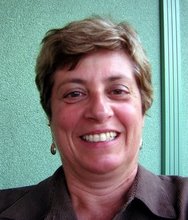Nine out of ten Americans now live in places of significant risk, according to the Federal Emergency Management Agency (FEMA). These risks include things like dam failure, hazardous material exposure, nuclear explosion, terrorism and natural disasters like wild fires, heat, hurricane, thunderstorms, tornados, tsunami, earthquakes, floods, landslides, volcanoes and winter storms.
Actually, it appears that the increased risk of disaster is occurring worldwide due to climate change, deteriorating ecosystems and the expansion of poverty, says a UN Global Assessment Report on Disaster Risk Reduction.
So what are we to do in the face of such threats to our lives, our homes, our communities├ ??and our world?
├ ??We need to change behavior in this country,├ ? Ł Craig Fugate, FEMA's new director, told his emergency-management instructors at a conference last June. The ├ ??government-centric├ ? Ł approach to disasters increases the odds of catastrophic failure in a big disaster, as Hurricane Katrina so clearly showed.
Fugate not only has extensive and relevant experience in disaster management, he is not an FOTP (friend of the powerful) as many of his predecessors were.
The former firefighter and paramedic, has served for the past 15 years as chief of emergency management in Alachua County and later for the State of Florida. He is reputedly a tell-it-like-it-is kind of guy who has had to plan for the worst and deal with the most difficult like Hurricanes Charley, Frances, Jeanne and Ivan in 2004 and Hurricanes Dennis, Katrina, Rita and Wilma in 2005.
├ ??We tend to look at the public as a liability,├ ? Ł says Fugate. ├ ??[But] who is going to be the fastest responder when your house falls on your head? Your neighbor.├ ? Ł
In fact, the 4,400-person agency was designed to defer to state and local officials. However, when the locals are overwhelmed by ├ ??system collapse,├ ? Ł as Fugate calls it, the government must rely on the public because it will take the feds too long to respond.
(Note: You can view every article as one long page if you sign up as an Advocate Member, or higher).





